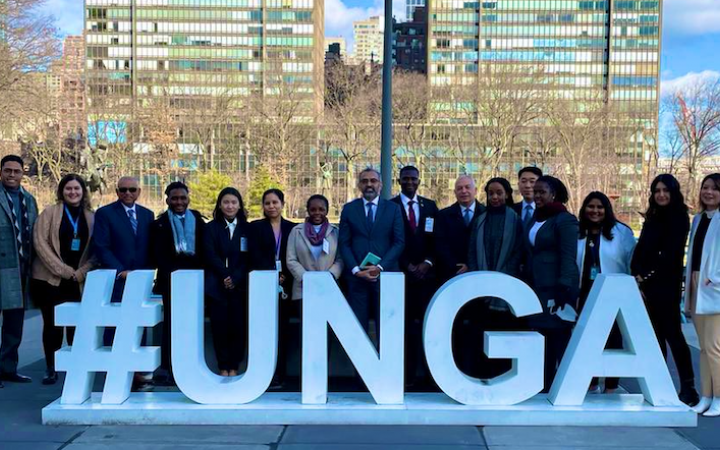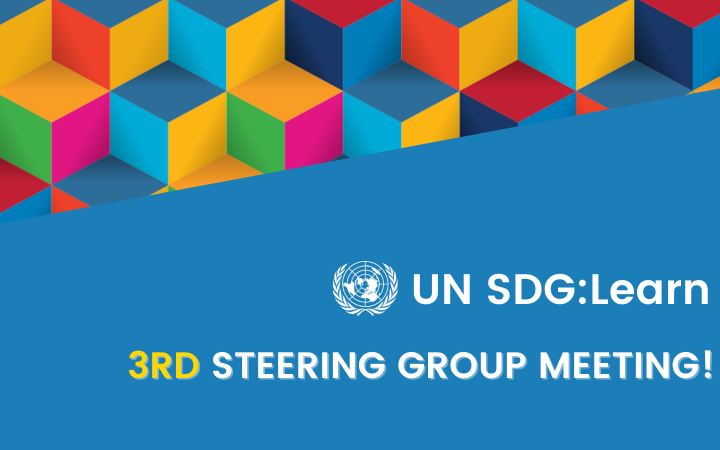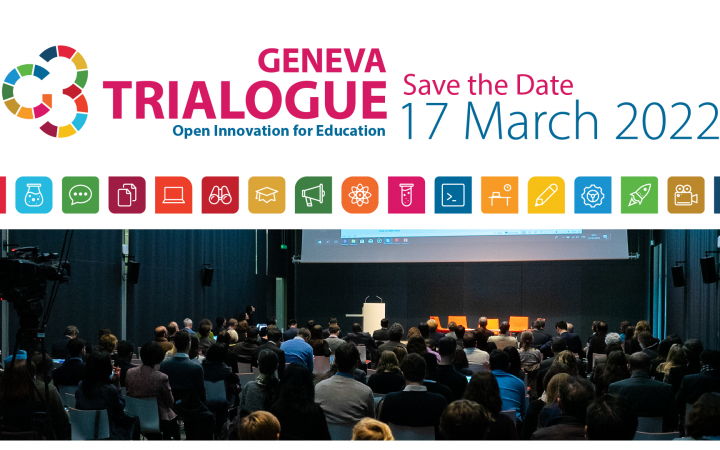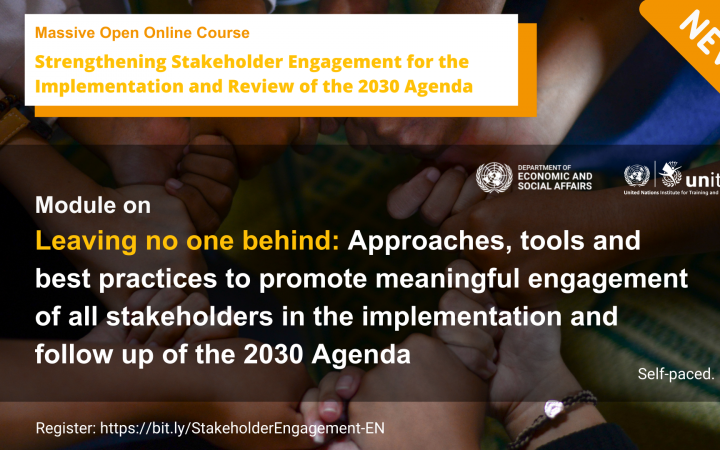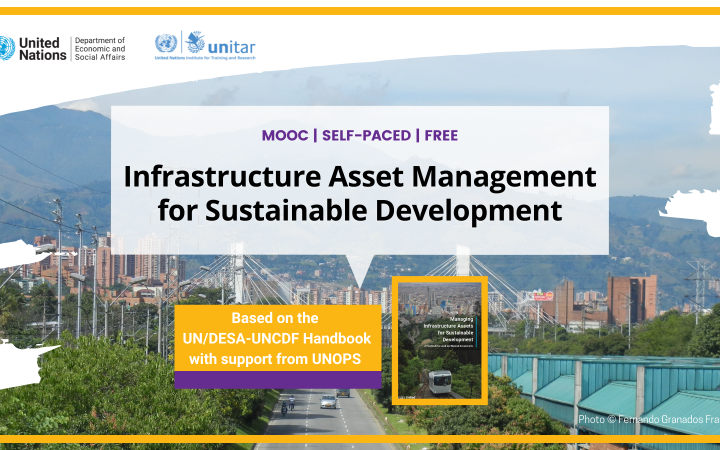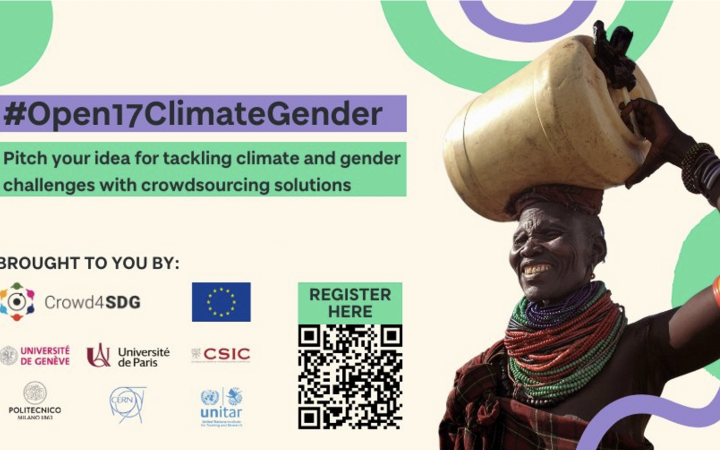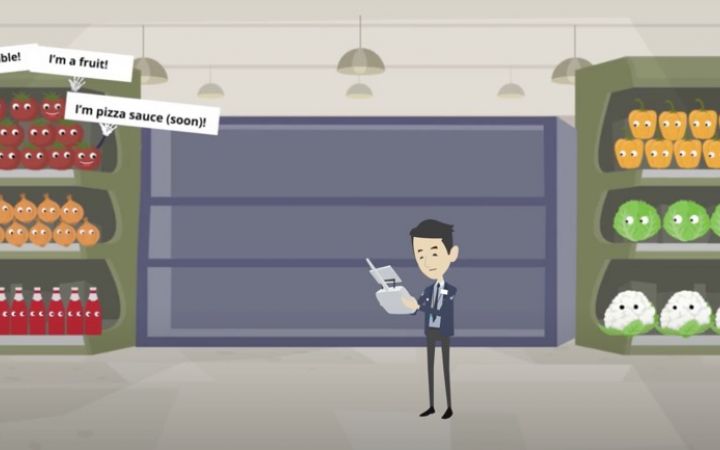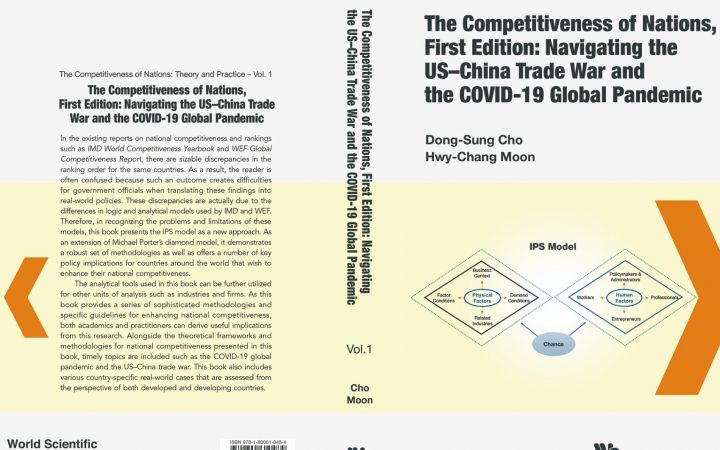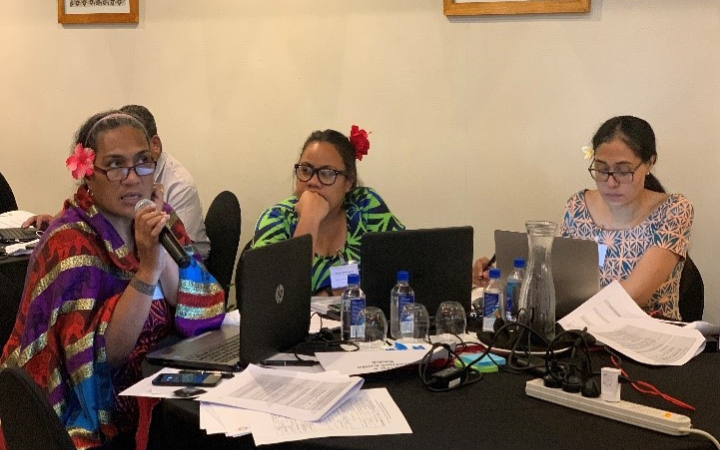Displaying 61 - 70 of 206
10 January 2022
10 January 2022, New York, USA – The United Nations Institute for Training and Research (UNITAR), in partnership with the Office of the President of the General Assembly (OPGA), successfully launched its flagship initiative, the 2022 President of the General Assembly Fellowship for HOPE (Harnessing Opportunities for Promoting Empowerment of Youth) on 10 January 2022. As envisioned by H.E. Mr. Abdulla Shahid, President of the 76th General Assembly, and his Presidency of Hope, this Fellowship programme aims to promote youth engagement in multilateralism and support the next generation of diplomats, particularly from underrepresented countries (LDCs, LLDCs, SIDS) at the United Nations, while also ensuring geographical representation and gender balance.
29 December 2021
29 December 2021, Geneva, Switzerland - On the 2nd of December 2021, UNITAR hosted the third meeting of UN SDG:Learn Steering Group entirely online. The meeting was co-organized with the UN System Staff College (UNSSC).
16 December 2021
16 December 2021, Geneva, Switzerland - On 17 March 2022, UNITAR, the University of Geneva, and the University Global Coalition, host the fourth Geneva Trialogue edition, under the theme of ”Open Innovation for Education“. The Geneva Trialogue fosters communication and collaboration between academia, international organizations and the private sector, to tackle the UN Sustainable Development Goals.
6 December 2021
A new Module focusing on “Leaving no one behind: Approaches, tools and best practices to promote meaningful engagement of all stakeholders in the implementation and follow up of the 2030 Agenda” of the Massive Open Online Course (MOOC) on Strengthening Stakeholder Engagement for the Review and Implementation of the 2030 Agenda is now available.
6 December 2021
United Nations Department of Economic and Social Affairs (UN DESA), United Nations Institute for Training and Research (UNITAR) and the School of International and Public Affairs (SIPA) at Columbia University have launched a new Massive Open Online Course (MOOC) on Infrastructure Asset Management for Sustainable Development. The course was developed based on the UN publication “Managing Infrastructure Assets for Sustainable Development: A Handbook for Local and National Governments” – the result of a joint collaboration of UN DESA, UNCDF and UNOPS.
6 December 2021
In August 2021, Crowd4SDG launched the second GEAR Cycle of the project. This year’s GEAR Cycle is focused on two Sustainable Development Goals (SDGs) – SDG 13 on Climate Change and SDG 5 on Gender Equality.
6 December 2021
Strategic Implementation of the 2030 Agenda Unit of UNITAR has teamed up with other UN partners to develop a series of microlearning videos to raise awareness about different topics through creative writing and storytelling.
25 November 2021
"159 companies are responsible for 80% of global corporate greenhouse gas emissions. Most of them don’t have all the answers on how to finance and achieve the targets they have set". This article brings some light into the black box of how the transition can be tackled in practice and is written by Eliya Devay, graduate of the UNITAR-Franklin University Switzerland Joint Master’s programme in Responsible Leadership & Climate Action. Eliya is specialized in Sustainable Finance and currently works at the United Nations Environment Programme Finance Initiative (UNEP FI) as a Consultant.
4 November 2021
UNITAR, The Institute for Industrial Policy Studies (IPS), and the Taylor Institute at Franklin University Switzerland (FUS), have presented report results on National Competitiveness: Two rankings for each nation with low-cost strategy and differentiation strategy. The results of the IPS National Competitiveness Report were released on October 28, 2021, in a public conference of National Competitiveness organised by IPS and FUS, and co-hosted by UNITAR.
27 October 2021
National ownership to monitor and achieve the SDGs is at the heart of the 2030 Agenda. However, many National Statistical Offices (NSO) face challenges in monitoring and reviewing the implementation of the SDGs. These challenges include the complexity of measuring certain problems and building relevant indicators, limited statistical capacity to monitor identified indicators, the lack of tools to facilitate the use of available information, and coordination difficulties experienced by stakeholders in producing, storing, and using the data, to name just a few.


